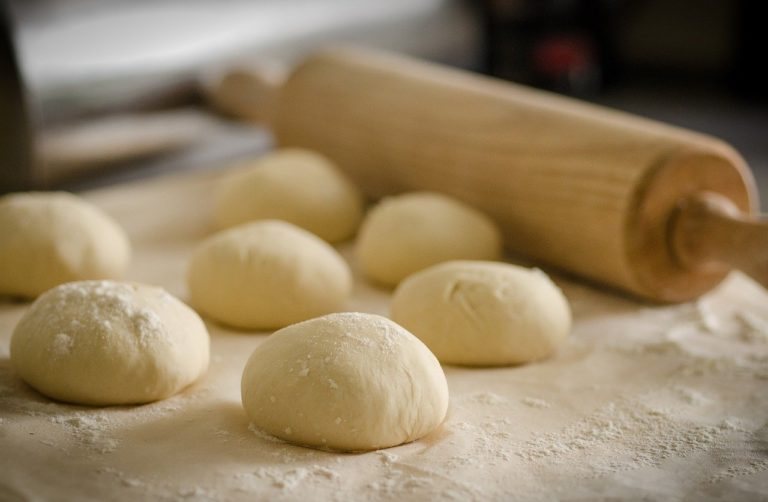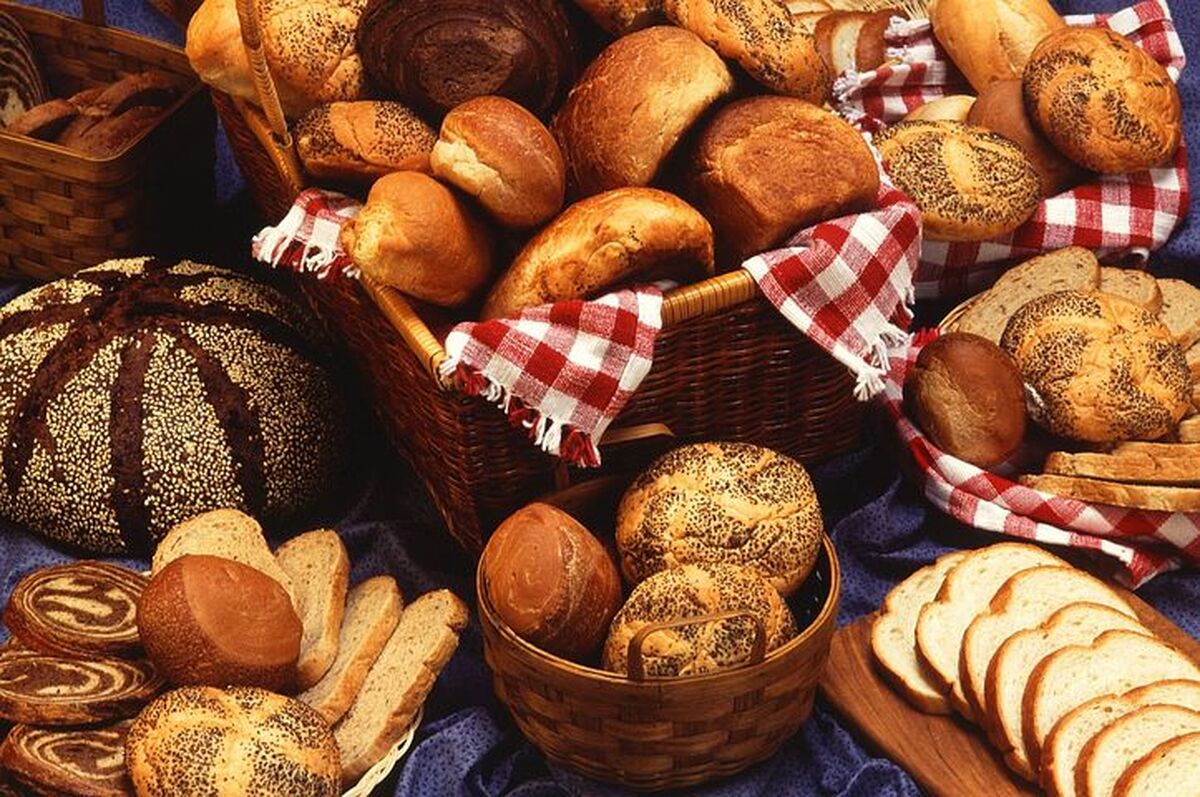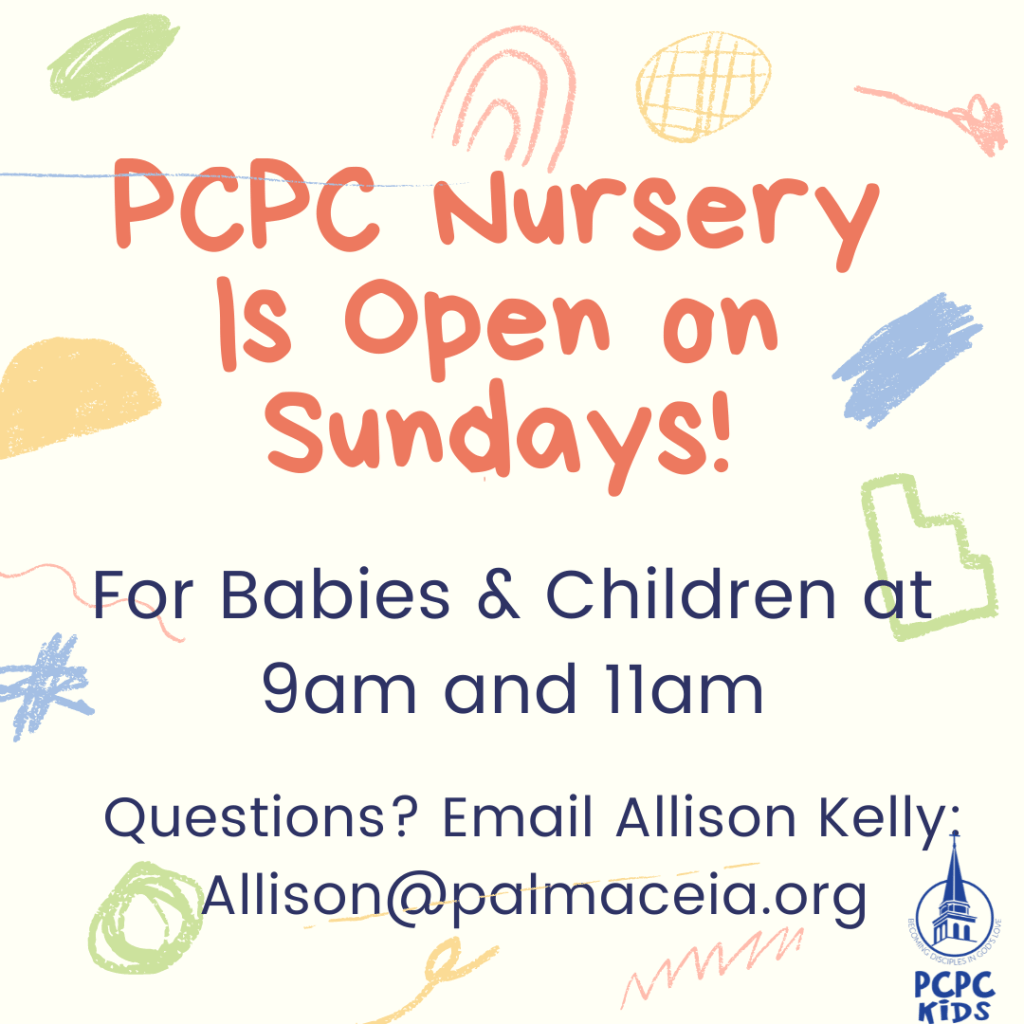Tenth Sunday after Pentecost- Week of Aug. 1, 2021 - Proper 14
Praying
God sightings and prayer offerings Invite each person to share where they saw or experienced God this week. Invite each person to share something — a person, community, experience, event, etc. – for which they want to offer prayer.
Good and gracious God, we thank you for all the ways you were and are present in our lives and in the world. [Invite each person to say aloud the sighting they named earlier.] We bring our prayers to you, prayers for… [invite each person to say aloud the prayer need they named earlier]. In Christ’s name we pray, Amen.
Reading
Prepare to read aloud John 6:24-35. Set the context for your children. Explain that before the story they are about to hear, Jesus performed a miracle. He fed a crowd of 5,000 people who gathered to hear him teach with only a few loaves of bread and fish. The next day the people realize Jesus has gone from their town. They are confused because they didn’t see him get in the boat with his disciples. They hear he is in the town of Capernaum, so they travel there to ask him questions.
Read aloud John 6:24-35.
John 6:24-35
Once the crowd realized that neither Jesus nor his disciples were there, they got into the boats and went to Capernaum in search of Jesus.
When they found him on the other side of the lake, they asked him, “Rabbi, when did you get here?”
Jesus answered, “Very truly I tell you, you are looking for me, not because you saw the signs I performed but because you ate the loaves and had your fill. Do not work for food that spoils, but for food that endures to eternal life, which the Son of Man will give you. For on him God the Father has placed his seal of approval.”
Then they asked him, “What must we do to do the works God requires?”
Jesus answered, “The work of God is this: to believe in the one he has sent.”
So they asked him, “What sign then will you give that we may see it and believe you? What will you do? Our ancestors ate the manna in the wilderness; as it is written: ‘He gave them bread from heaven to eat.’”
Jesus said to them, “Very truly I tell you, it is not Moses who has given you the bread from heaven, but it is my Father who gives you the true bread from heaven. For the bread of God is the bread that comes down from heaven and gives life to the world.”
“Sir,” they said, “always give us this bread.”
Then Jesus declared, “I am the bread of life. Whoever comes to me will never go hungry, and whoever believes in me will never be thirsty.
Exodus 16
The whole congregation of the Israelites complained against Moses and Aaron in the wilderness. The Israelites said to them, “If only we had died by the hand of the Lord in the land of Egypt, when we sat by the fleshpots and ate our fill of bread; for you have brought us out into this wilderness to kill this whole assembly with hunger.”
Then the Lord said to Moses, “I am going to rain bread from heaven for you, and each day the people shall go out and gather enough for that day. In that way I will test them, whether they will follow my instruction or not.
Then Moses said to Aaron, “Say to the whole congregation of the Israelites, ‘Draw near to the Lord, for he has heard your complaining.’” And as Aaron spoke to the whole congregation of the Israelites, they looked toward the wilderness, and the glory of the Lord appeared in the cloud. The Lord spoke to Moses and said, “I have heard the complaining of the Israelites; say to them, ‘At twilight you shall eat meat, and in the morning you shall have your fill of bread; then you shall know that I am the Lord your God.’”
In the evening quails came up and covered the camp; and in the morning there was a layer of dew around the camp. When the layer of dew lifted, there on the surface of the wilderness was a fine flaky substance, as fine as frost on the ground. When the Israelites saw it, they said to one another, “What is it?” For they did not know what it was. Moses said to them, “It is the bread that the Lord has given you to eat.
Read aloud John 6:24-35.
John 6:24-35
Once the crowd realized that neither Jesus nor his disciples were there, they got into the boats and went to Capernaum in search of Jesus.
When they found him on the other side of the lake, they asked him, “Rabbi, when did you get here?”
Jesus answered, “Very truly I tell you, you are looking for me, not because you saw the signs I performed but because you ate the loaves and had your fill. Do not work for food that spoils, but for food that endures to eternal life, which the Son of Man will give you. For on him God the Father has placed his seal of approval.”
Then they asked him, “What must we do to do the works God requires?”
Jesus answered, “The work of God is this: to believe in the one he has sent.”
So they asked him, “What sign then will you give that we may see it and believe you? What will you do? Our ancestors ate the manna in the wilderness; as it is written: ‘He gave them bread from heaven to eat.’”
Jesus said to them, “Very truly I tell you, it is not Moses who has given you the bread from heaven, but it is my Father who gives you the true bread from heaven. For the bread of God is the bread that comes down from heaven and gives life to the world.”
“Sir,” they said, “always give us this bread.”
Then Jesus declared, “I am the bread of life. Whoever comes to me will never go hungry, and whoever believes in me will never be thirsty.
Exodus 16
The whole congregation of the Israelites complained against Moses and Aaron in the wilderness. The Israelites said to them, “If only we had died by the hand of the Lord in the land of Egypt, when we sat by the fleshpots and ate our fill of bread; for you have brought us out into this wilderness to kill this whole assembly with hunger.”
Then the Lord said to Moses, “I am going to rain bread from heaven for you, and each day the people shall go out and gather enough for that day. In that way I will test them, whether they will follow my instruction or not.
Then Moses said to Aaron, “Say to the whole congregation of the Israelites, ‘Draw near to the Lord, for he has heard your complaining.’” And as Aaron spoke to the whole congregation of the Israelites, they looked toward the wilderness, and the glory of the Lord appeared in the cloud. The Lord spoke to Moses and said, “I have heard the complaining of the Israelites; say to them, ‘At twilight you shall eat meat, and in the morning you shall have your fill of bread; then you shall know that I am the Lord your God.’”
In the evening quails came up and covered the camp; and in the morning there was a layer of dew around the camp. When the layer of dew lifted, there on the surface of the wilderness was a fine flaky substance, as fine as frost on the ground. When the Israelites saw it, they said to one another, “What is it?” For they did not know what it was. Moses said to them, “It is the bread that the Lord has given you to eat.
Reflecting and Responding
Reflection
Children are very trusting. We know that when babies form secure attachments to their caregivers, they trust that their basic needs will be met. This unconditional trust continues into childhood. It’s not until we grow older that we begin to doubt our security. We worry we won’t have enough money, energy or time to accomplish all that we want to do. Jesus reminds us, though, that he is the “bread of life.” Through him, we will always have all we need. In this lesson, your children will explore the idea that trust and faith in Jesus can sustain us.
Begin the time with your children by eating a snack together. Pick a food that is simple but nourishing: a piece of fruit or vegetable or something you prepare from just a few ingredients. As your children eat, discuss the benefits of eating this food. How does it help their bodies? What makes it nourishing? Note that this particular food is simple, yet it gives your children what they need to live. It gives them energy and helps them grow. Ask them to hold on to these ideas as you read aloud this week’s Scripture.
After reading, ask your children what the crowd came to ask Jesus about. Note that they originally wanted to know how Jesus traveled to Capernaum when they didn’t see him go by boat with his disciples. Jesus uses this opportunity to talk to them about something more important. He says that they followed him to find out where to get more food, but they should think about how to do God’s work on earth and believe in the one who God has sent to be with them. They continue to be confused, asking how they will know who this person God has sent is. They wonder if God will send a signal as God did when sending manna to the Israelites wandering in the wilderness. Jesus replies that God has sent them a sign. He has sent them Jesus, “the bread of life.”
Encourage your children to wonder about what Jesus means when he says he is the “bread of life.” Remind them of your earlier discussion about the value of eating your simple snack. Ask them how believing in Jesus can help us grow. Note that our bodies are not the only parts of us that grow. Our knowledge grows, our relationships with other people grow and our faith grows. How can knowing about and believing in Jesus help these parts of our lives grow? Younger children may have difficulty making the cognitive leap from the concrete idea of food helping our bodies grow to the abstract concept of growing faith and knowledge. Simply let them play around with the idea for a while without worrying about whether they’ll make a full connection.
To help your children continue to develop this idea, bake some bread with them. Use a favorite bread recipe or choose from one of these. Be sure you choose a recipe that has a leavening agent in it. You’ll want the bread to change as you prepare it.
Respond
Suggested recipes:
For quick biscuits: https://www.foodnetwork.com/recipes/food-network-kitchen/buttermilk-biscuits-5484249
If you have a bit more time, try: https://www.foodnetwork.com/recipes/alton-brown/very-basic-bread-recipe-1916079
Allergy-friendly bread recipe (gluten-free, dairy-free, grain-free): http://www.grainmillwagon.com/easy-allergy-friendly-sandwich-bread-recipe-gluten-egg-and-dairy-free/
After baking the bread with your children, talk about how the ingredients changed as you made the recipe. What did they look like when you started? How did they change when you mixed them? How did they change as the bread rose? How did the dough change when it was baked? Note that believing in and learning about Jesus changes us also.
Share the bread together. As you eat, recount stories about Jesus with your children. Ask them to share their favorite Bible stories and tell them the stories you hold most dear. Recall times that each of you did God’s work on earth by doing what Jesus did during his ministry. Remind your children that these are the ways that Jesus is “the bread of life.” Jesus feeds us through our faith. We can be reminded of this each time we eat bread, whether we do so in a worship service during the Lord’s Supper or when we eat it at home.
After baking the bread with your children, talk about how the ingredients changed as you made the recipe. What did they look like when you started? How did they change when you mixed them? How did they change as the bread rose? How did the dough change when it was baked? Note that believing in and learning about Jesus changes us also.
Share the bread together. As you eat, recount stories about Jesus with your children. Ask them to share their favorite Bible stories and tell them the stories you hold most dear. Recall times that each of you did God’s work on earth by doing what Jesus did during his ministry. Remind your children that these are the ways that Jesus is “the bread of life.” Jesus feeds us through our faith. We can be reminded of this each time we eat bread, whether we do so in a worship service during the Lord’s Supper or when we eat it at home.
Children are very trusting. We know that when babies form secure attachments to their caregivers, they trust that their basic needs will be met. This unconditional trust continues into childhood. It’s not until we grow older that we begin to doubt our security. We worry we won’t have enough money, energy or time to accomplish all that we want to do. Jesus reminds us, though, that he is the “bread of life.” Through him, we will always have all we need. In this lesson, your children will explore the idea that trust and faith in Jesus can sustain us.
Begin the time with your children by eating a snack together. Pick a food that is simple but nourishing: a piece of fruit or vegetable or something you prepare from just a few ingredients. As your children eat, discuss the benefits of eating this food. How does it help their bodies? What makes it nourishing? Note that this particular food is simple, yet it gives your children what they need to live. It gives them energy and helps them grow. Ask them to hold on to these ideas as you read aloud this week’s Scripture.
After reading, ask your children what the crowd came to ask Jesus about. Note that they originally wanted to know how Jesus traveled to Capernaum when they didn’t see him go by boat with his disciples. Jesus uses this opportunity to talk to them about something more important. He says that they followed him to find out where to get more food, but they should think about how to do God’s work on earth and believe in the one who God has sent to be with them. They continue to be confused, asking how they will know who this person God has sent is. They wonder if God will send a signal as God did when sending manna to the Israelites wandering in the wilderness. Jesus replies that God has sent them a sign. He has sent them Jesus, “the bread of life.”
Encourage your children to wonder about what Jesus means when he says he is the “bread of life.” Remind them of your earlier discussion about the value of eating your simple snack. Ask them how believing in Jesus can help us grow. Note that our bodies are not the only parts of us that grow. Our knowledge grows, our relationships with other people grow and our faith grows. How can knowing about and believing in Jesus help these parts of our lives grow? Younger children may have difficulty making the cognitive leap from the concrete idea of food helping our bodies grow to the abstract concept of growing faith and knowledge. Simply let them play around with the idea for a while without worrying about whether they’ll make a full connection.
To help your children continue to develop this idea, bake some bread with them. Use a favorite bread recipe or choose from one of these. Be sure you choose a recipe that has a leavening agent in it. You’ll want the bread to change as you prepare it.
Respond
Suggested recipes:
For quick biscuits: https://www.foodnetwork.com/recipes/food-network-kitchen/buttermilk-biscuits-5484249
If you have a bit more time, try: https://www.foodnetwork.com/recipes/alton-brown/very-basic-bread-recipe-1916079
Allergy-friendly bread recipe (gluten-free, dairy-free, grain-free): http://www.grainmillwagon.com/easy-allergy-friendly-sandwich-bread-recipe-gluten-egg-and-dairy-free/
After baking the bread with your children, talk about how the ingredients changed as you made the recipe. What did they look like when you started? How did they change when you mixed them? How did they change as the bread rose? How did the dough change when it was baked? Note that believing in and learning about Jesus changes us also.
Share the bread together. As you eat, recount stories about Jesus with your children. Ask them to share their favorite Bible stories and tell them the stories you hold most dear. Recall times that each of you did God’s work on earth by doing what Jesus did during his ministry. Remind your children that these are the ways that Jesus is “the bread of life.” Jesus feeds us through our faith. We can be reminded of this each time we eat bread, whether we do so in a worship service during the Lord’s Supper or when we eat it at home.
After baking the bread with your children, talk about how the ingredients changed as you made the recipe. What did they look like when you started? How did they change when you mixed them? How did they change as the bread rose? How did the dough change when it was baked? Note that believing in and learning about Jesus changes us also.
Share the bread together. As you eat, recount stories about Jesus with your children. Ask them to share their favorite Bible stories and tell them the stories you hold most dear. Recall times that each of you did God’s work on earth by doing what Jesus did during his ministry. Remind your children that these are the ways that Jesus is “the bread of life.” Jesus feeds us through our faith. We can be reminded of this each time we eat bread, whether we do so in a worship service during the Lord’s Supper or when we eat it at home.
Check out an entire playlist about this scripture by clicking on the image
Connecting
Connecting through OT story
Watch and listen to a reading of the book “Adam and Eve’s First Sunset: God’s New Day” by Sandy Eisenberg Sasso
Watch and listen to a reading of the book “Adam and Eve’s First Sunset: God’s New Day” by Sandy Eisenberg Sasso
- What did Adam and Eve fear?
- What did they do when they were afraid?
- How did they get what they needed?
about six minutes to watch and listen
Connecting with our lives
Engage in dialogue:
Engage in dialogue:
- What was happening with the ancient Israelites in the Exodus story?
- What was their first reaction?
- Why did they complain?
- Why did they want to go back to a place and time when they were enslaved?
- What did their complaining and accusations say about their relationship with God?
- Why did God listen to their cries?
- What was God’s response?
- Why did God provide them with food?
- Why do you think God wanted them to only pick up enough bread for that one day?
- What is your first response when you are afraid you won’t have what you need?
- In what ways did you try to “fix it” by yourself?
- When has God provided what you needed?
- What role do doubt and fear play during that time?
- What helped you trust God would provide what you needed?
- What does this story teach you about God and about how much God cares for you and for all God’s people?
Praying
Close your time together by praying for one another, your neighbor, community and the world.
Sources:
Exodus Passage
REBECCA DAVIS is the associate professor of Christian education at Union Presbyterian Seminary in Charlotte, North Carolina. A teaching elder and certified educator, she served congregations for over 20 years before moving into academic teaching. In addition to teaching and mentoring students, her passion is child advocacy and ministry.
John Passage
JOELLE BRUMMIT-YALE is the director of children’s and youth ministries at Chapel in the Pines Presbyterian in Chapel Hill, North Carolina. When not at the church, she can usually be found at home with her son and husband caring for their many animals and developing their family homestead.
Sources:
Exodus Passage
REBECCA DAVIS is the associate professor of Christian education at Union Presbyterian Seminary in Charlotte, North Carolina. A teaching elder and certified educator, she served congregations for over 20 years before moving into academic teaching. In addition to teaching and mentoring students, her passion is child advocacy and ministry.
John Passage
JOELLE BRUMMIT-YALE is the director of children’s and youth ministries at Chapel in the Pines Presbyterian in Chapel Hill, North Carolina. When not at the church, she can usually be found at home with her son and husband caring for their many animals and developing their family homestead.
PRAYground is Open on Sundays in Worship
8:30 am, 9:00 am, and 11:00 am
PRAYground pictures
8:30 am, 9:00 am, and 11:00 am
PRAYground pictures
The Nursery will open again inside on Sundays
Children of all ages are always welcome outside to roam around the PRAYground during the 9:00 and 11:00 services.
Meet Janae and Lindsey who will be caring for our cherished children.

Message from Janae Gipson:
"I have always loved working and being around children. I volunteered for four years at St. Paul’s Catholic Church nursery every Sunday. I volunteer weekly at Gigi’s Playhouse, a Downs Syndrome Achievement Center and at Tampa Bay Boulevard Elementary. I really enjoy children and believe that they make the world so much better. Although I have the most experience with nannying and babysitting with children of all ages, I prefer to work with infants and babies under two years. I’ve just graduated from Brooks-Debartolo Collegiate High School in Tampa and am entering Hillsborough Community College in the fall in Child Development. I am CPR and first aid certified. I’m looking forward to spending time with the children at Palma Ceia."
"I have always loved working and being around children. I volunteered for four years at St. Paul’s Catholic Church nursery every Sunday. I volunteer weekly at Gigi’s Playhouse, a Downs Syndrome Achievement Center and at Tampa Bay Boulevard Elementary. I really enjoy children and believe that they make the world so much better. Although I have the most experience with nannying and babysitting with children of all ages, I prefer to work with infants and babies under two years. I’ve just graduated from Brooks-Debartolo Collegiate High School in Tampa and am entering Hillsborough Community College in the fall in Child Development. I am CPR and first aid certified. I’m looking forward to spending time with the children at Palma Ceia."





